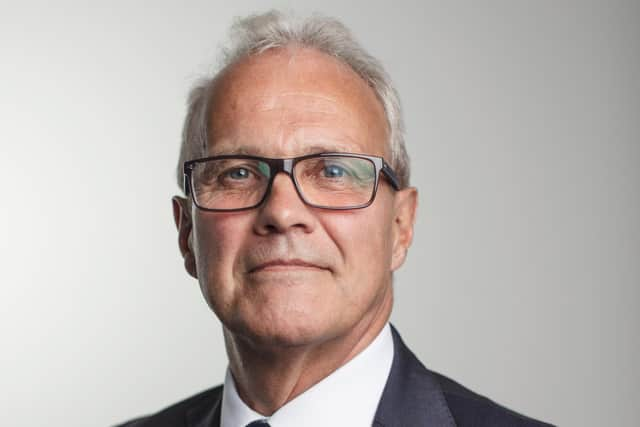We need to do more to end mental health inequalities - Sandy Riddell


As others have said, the theme is especially pertinent this year. After the initial shock of Covid-19, we have begun to see that one of the worldwide consequences of the pandemic was a sharp increase in the gap between rich and poor, with a record rise in new billionaires, and a simultaneous rise in poverty. To most of us this seems bizarre and unfair.
But ‘mental health in an unequal world’ is also a theme that could have been used many times in the past.
Poverty and mental ill health
Advertisement
Hide AdAdvertisement
Hide AdFor some years, statistics have shown a clear link between poverty and mental ill health. In Scotland, we see it with higher suicide rates in more deprived areas. Having fewer life chances and living with a lack of security in income and housing can create tremendous ongoing stress.
At the Mental Welfare Commission, we recently published data which for the first time shows higher rates of detention for mental ill health for people living in Scotland’s most deprived areas compared to those living in less deprived parts of the country. Detention using the Mental Health Act only takes place when people are seriously unwell.
Our data confirms the inequality of mental health in Scotland now - you are more likely to have good mental health if you are better off.
We hope our report showing this further connection will be looked at carefully by government, and by mental health services in hospital and in the community. But of course, health, education, housing and the economy are linked – to have the best life chances for every individual, and consequent better mental health, all of society needs to become more equal.
Racial inequality
Inequality in mental health can also be seen where we compare the experience of minority communities with the majority.
Last month the Mental Welfare Commission published its first report looking at race and mental health services in Scotland. We heard from staff who witnessed racism at work, we saw differences in the ways people from black and minority ethnic communities were detained for mental health treatment, and we heard of a desire for more training and better recording of information on ethnicity in Scotland. We see this report as a call for action, and we’d encourage anyone to read it on our website.
LGBT community
LGBT people experience higher rates of mental ill health than the general population. They also have a higher rate of suicidal ideation and self harm.
The Commission worked with LGBT Health and Wellbeing and a number of other organisations to create a good practice guide to LGBT inclusive mental health services. It has case studies and simple, practical, advice on how to help people feel included and supported in their care.
Need to do more
Advertisement
Hide AdAdvertisement
Hide AdWe welcomed this theme for World Mental Health Day, and I hope that it may have raised awareness with a wider audience; have shown people the absolute links between deprivation or marginalisation and poor mental health.
We all need to do more.
Sandy Riddell, Chair, Mental Welfare Commission for Scotland
Comments
Want to join the conversation? Please or to comment on this article.